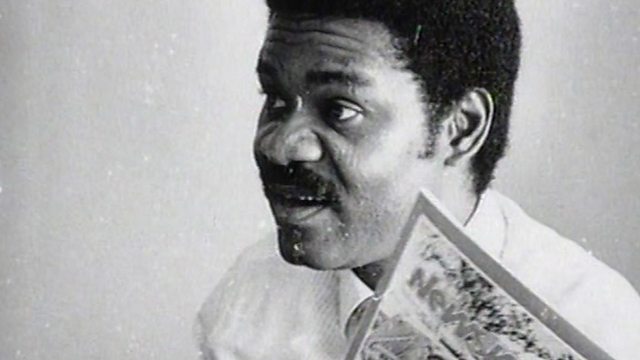On this day 37 years ago, an icon of bold investigative journalism, Dele Giwa was killed via a parcel bomb in his home.
Until his death, Dele Giwa was the editor-in-chief and chief executive of Newswatch.
A parcel bomb delivered to his house during the military regime of former military Head of State, General Ibrahim Babangida killed him on October 19, 1986.
Born Sumonu Oladele Giwa in Ife (in present-day Osun State, Southwest Nigeria) on 16 March 1947. Having spent his early years in Ife, he relocated to the United States in 1971, to continue his education. He studied English at Brooklyn College and, after, he earned a Master’s in Public Communication from Fordham University.
Giwa would later work at The New York Times and later return to his country home Nigeria in 1979, to join The Daily Times.
In 1980, he joined The Sunday Concord. Four years later, Giwa and fellow journalists Ray Ekpu, Dan Agbese and Yakubu Mohammed who were interested in pursuing a high standard of journalism in Nigeria established Newswatch, where he became the magazine’s first editor-in-chief.
As a celebrated journalist, Giwa distinguished himself from the outset through his unrelenting commitment to quality journalism, thereby having a successful and illustrious career.
During the Second Republic, press freedoms faced repression and clampdowns, however, Giwa’s doggedness for social and political justice stood him out. This later led to his arrest in 1982, he was arrested for one of his publications in the Sunday Concord.
Four years after his arrest, Giwa was killed while having breakfast with his friend Kayode Soyinka at his residence, located at 25 Talabi Street, Ikeja, Lagos, in 1986. He died at the age of 39.
The manner of his death – a bomb parcelled, sealed and delivered to his home has remained a mystery as the perpetrator(s) has remained faceless to date.
In remembrance of his death annually, the question – Who killed Dele Giwa? Why? has stayed as a fresh wound year-in, year-out to the nation/continent’s journalistic sphere.
Despite killing him, African journalists have not stopped facing several violations of their right to press freedom and freedom of expression in the form of intimidation, harassment, threats, attacks, beatings, illegal detentions, arrests and imprisonment, and confiscation of equipment.
Nevertheless, Giwa would forever be remembered for his nature of exposing corrupt and illegal acts of the government and his name would never be forgotten in the good book of social and political justice.


















